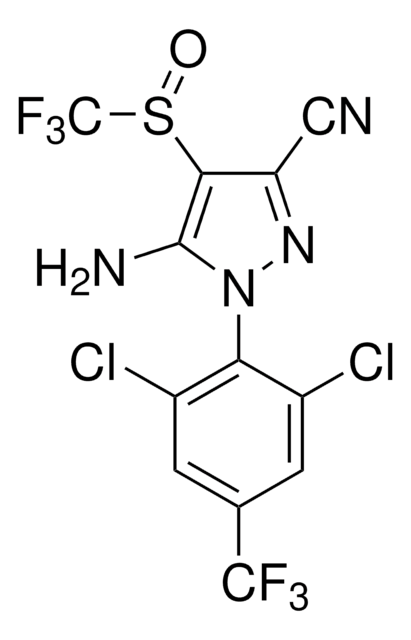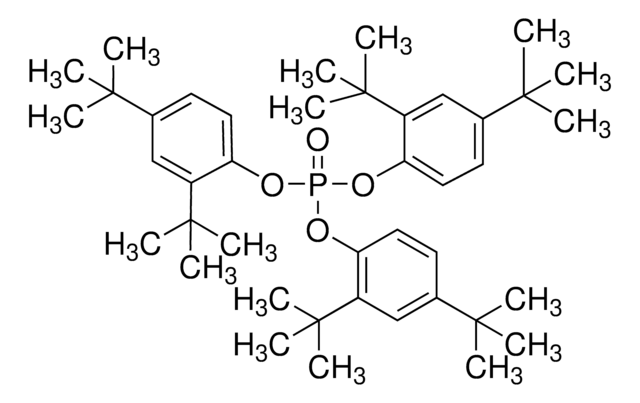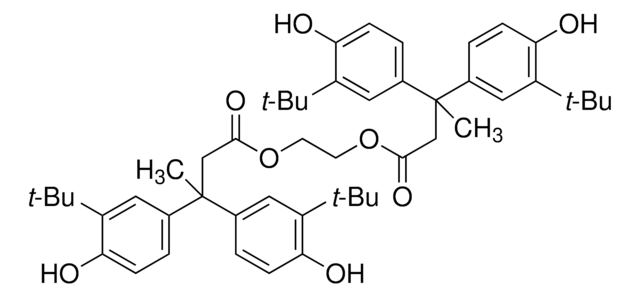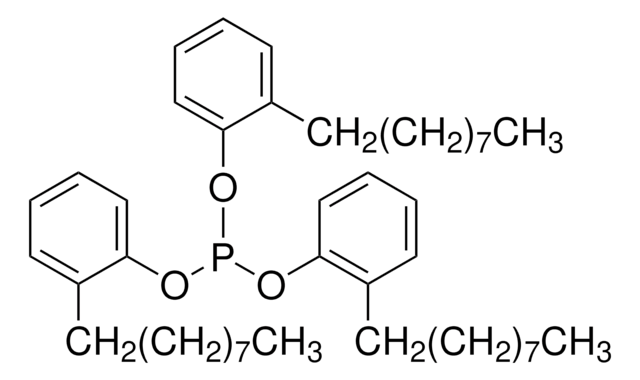P2155012
Plastic additive 12
European Pharmacopoeia (EP) Reference Standard
Synonym(s):
Tris(2,4-di-tert-butylphenyl) phosphite
About This Item
Recommended Products
grade
pharmaceutical primary standard
manufacturer/tradename
EDQM
mp
181-184 °C (lit.)
application(s)
pharmaceutical (small molecule)
format
neat
SMILES string
CC(C)(C)c1ccc(OP(Oc2ccc(cc2C(C)(C)C)C(C)(C)C)Oc3ccc(cc3C(C)(C)C)C(C)(C)C)c(c1)C(C)(C)C
InChI
1S/C42H63O3P/c1-37(2,3)28-19-22-34(31(25-28)40(10,11)12)43-46(44-35-23-20-29(38(4,5)6)26-32(35)41(13,14)15)45-36-24-21-30(39(7,8)9)27-33(36)42(16,17)18/h19-27H,1-18H3
InChI key
JKIJEFPNVSHHEI-UHFFFAOYSA-N
Looking for similar products? Visit Product Comparison Guide
General description
Application
Packaging
Other Notes
Storage Class Code
13 - Non Combustible Solids
WGK
nwg
Flash Point(F)
Not applicable
Flash Point(C)
Not applicable
Choose from one of the most recent versions:
Certificates of Analysis (COA)
Sorry, we don't have COAs for this product available online at this time.
If you need assistance, please contact Customer Support.
Already Own This Product?
Find documentation for the products that you have recently purchased in the Document Library.
Customers Also Viewed
Our team of scientists has experience in all areas of research including Life Science, Material Science, Chemical Synthesis, Chromatography, Analytical and many others.
Contact Technical Service












